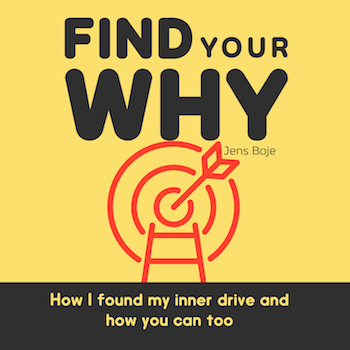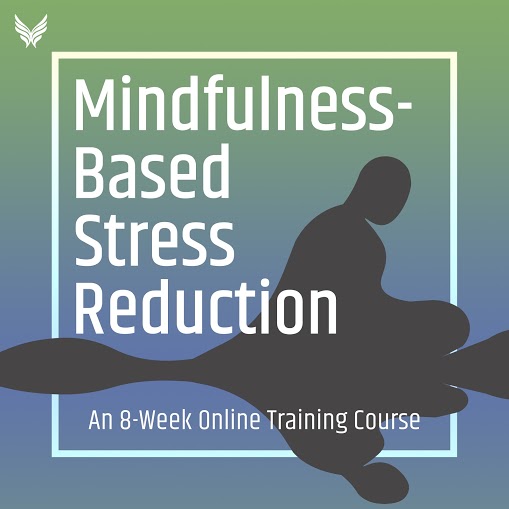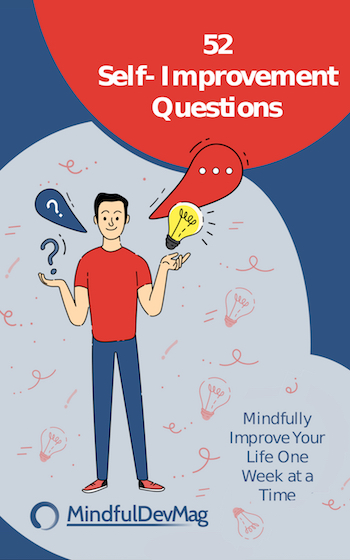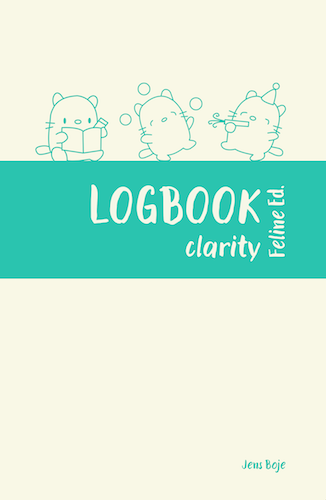How To Set Meaningful Goals Using Mindfulness
Wait, isn’t this a little confusing? Mindfulness teaches us to always stay in the present moment, never being stuck in the past or worrying about the future, right? Then isn’t the whole idea of ‘goal setting’ against the very fundamentals of mindfulness?
Yes, it’s true that while practicing mindfulness we need to affirm that there’s nowhere to go and nothing to get, but you don’t have to refrain yourself from setting goals if you practice mindfulness. Instead, learn how to set meaningful goals, mindfully. You need to bring your attention to the present moment while working in the direction of creating a better future with the help of your goals.
Set goals that scare you and excite you at the same time
You need to set these goals with a certain level of awareness regarding how to perceive and manage the aspirations attached to them. Relax, it’s not as confusing as it sounds! Here’s how you can set meaningful goals with the help of mindfulness -
How to Set Meaningful Goals
Start by Finding Who You Are
First of all, try to figure out who you are. Think about it deeply, open-mindedly and with as much honesty as you can. As you meditate find your deepest core and then sit with it and ask yourself “what’s my essence?” or maybe something like, “what’s that one thing that truly makes me, me?”
Your goals matter. But are your goals really your goals? Or those of others?
Exploring your own psyche and figuring out what is it that you are really seeking in your life helps you decide who you really are. You might come up with answers like - “I am someone who enjoys being challenged all the time”, “I am someone who wants to nurture his/her creative side” or maybe something like, “I am someone who wants to live a simple, meaningful life.”
These realizations are very important because based on them, you’ll be able to decide what are those things that you value the most in your life, which is our next step.
What Do You Value the Most
In this step you need to ask yourself - what makes me truly happy and joyful? Is it freedom, love, compassion, honesty, ethics & morality or maybe something like simplicity. This step will shed some light on those aspects of your personality which you need to include more into your life. It could be anything like - more alone time, more holidays, more time devoted to learning exciting, new stuff, etc.
Most people think they know what they want in life, but the truth is - they don’t. For example - in your mind, you might think that earning a lot of money is your number one priority, but when you sit in meditation, you might realize that you want to earn all that money because subconsciously you’ve associated money with the ‘freedom’ of doing whatever you want in your life.
The hardest part in setting goals is finding out if it is actually your goal or one that originates from the outside. Like limiting beliefs, we accept many things as our own, but they are actually not.
We just heard or learned them during our life, consciously and subconsciously. I.e., is becoming a doctor your dream, or is it because your parents are doctors too and wanted you to become one also? Is money evil, or is it only the perception of your social groups?
So, be very honest with yourself and try to dig deeper and deeper into your core while answering this question, but make sure that you aren’t forcing yourself as you do this. Just ask yourself this question and then sit back with the feeling of surrender and kindness. The answers will surface on their own when you are ready to face them.
Set Goals That are More Inclusive in Nature
When you are clear about your strengths and weaknesses as well as your motivations and fears, it’s time to set some goals! You can set any kind of goals for yourself. Short term goals, long term goals, goals which are to be achieved in the next couple of days or the ULTIMATE GOAL of your life, whatever you think would help make your life better. But the important thing to remember is - that your goals should reflect who you are and the things you value the most in your life.
Also, try to set goals that are more inclusive in nature. Instead of defining a goal that’ll make YOU feel happy, set a goal that’ll make SOMEONE ELSE feel happy as well. You can start by picking someone who’s close to you like your partner or your parents, siblings or your kids. Achieving goals like that will make you feel wonderful since they give your life a purpose that’s noble and benevolent. Then once you are comfortable, start adding more and more people to the list.
Visualize Your Goals
Take some time off and visualize your goals. Imagine that what you’ve marked down as a goal has already been achieved by you. Start by visualizing that you are working towards that goal as you might have planned. And then visualize that you’ve successfully achieved that goal in all its totality. Whatever that goal is - landing your dream job, finding the love of your life, completing a difficult assignment or losing those extra 10 pounds, imagine that you’ve done it! It’s here, it’s a reality!
How does that make you feel? What kind of feelings, emotions, and sensations are produced in your body and in your mind when you do that? This will further help you decide whether your goals are meaningful enough or not. If they genuinely make you feel happy, peaceful and loving, you are on the right track. If not, please spend some more time and analyze your goals with an enhanced sense of profundity.
How to Make Sure Your Goals Aren’t Entangling
As we’ve discussed above, a goal isn’t a problem by itself, but the attachment to the goal is. Why so many mindfulness teachers tell you not to set goals and instead learn how to let go is because they know how difficult it is for people (especially for new meditators), to think about their future with a certain level of intensity without getting entangled with their thoughts and emotions.
Here are a few tips you can keep in mind while setting meaningful goals via mindfulness that’ll help you remain free from any unhealthy attachments or entanglements -
Treat Your Goals as Reminders
When you meditate, the usual instruction is to stay with your breath (or a mantra) while simply observing your thoughts and emotions without making any judgments or assumptions. Whenever you realize that you’ve drifted away because of all the chattering your mind has been doing, simply bring your attention back to the present moment using your breath.
Similarly, you can use your goals to bring your attention back to your commitments in a similar ‘kind, gentle, non-judgemental’ manner. So, whenever you feel that you are losing motivation or you are being distracted, use your goals as reminders. By doing so, you won’t attach too much undue importance to your goals.
Treat Your Goals as Adventures
Or maybe I should say that treat the journey towards achieving these goals as adventures! While pursuing your goals make sure you aren’t too attached to their outcome. Instead, treat them as adventures or experiments with the intention of learning new things or experiencing new experiences.
Usually, your goals tend to push you out of your comfort zone and that’s actually amazing for your spiritual growth. So, as you work towards your goals, make sure you are keeping this spirit of inquiry and adventure alive within you. Also, make sure you are using this opportunity to enhance your mindfulness practice by consistently maintaining a mindful attitude towards how you are reacting to these new challenges or experiences.
Know That Your Goals Will Evolve with Time
If you’ll keep in mind this little fact that your goals are going to evolve with time, naturally you won’t get too attached to them. For example - many people start meditating in order to handle their soaring stress levels or to sleep better or something like that. At that time their goal is to get a more peaceful and stable mindset via meditation. But soon, they realize the immensity of being a meditator. Their life changes and they began to transform as a human being. Then, obviously their intentions and goals evolve from just being able to sleep better.
The same applies to every other goal you will set in your life. As you’ll evolve with time and with your practice, your goals will also evolve. So, sticking to just one goal and being absolutely rigid about it doesn’t make any sense. New goals will replace your old goals and then these new goals will be replaced by the even newer ones.
Conclusion
So, just set a goal, use it for as long as it inspires you or reminds you of what needs to be done, but don’t take it too seriously. If you could do that - setting goals with a sense of dispassion, your goals would serve a wonderful purpose, without ever making you feel that you’ve lost a part of yourself, in the process. As your consciousness will rise (since you’ll be practicing mindfulness consistently), you’ll see that even without rigid goals, you’ll be able to eat better, feel better and rise in your chosen path of career, effortlessly. Then, the need for setting goals and running after them compulsively will go away on its own. But till then, happy mindful goal setting!
[jk]







